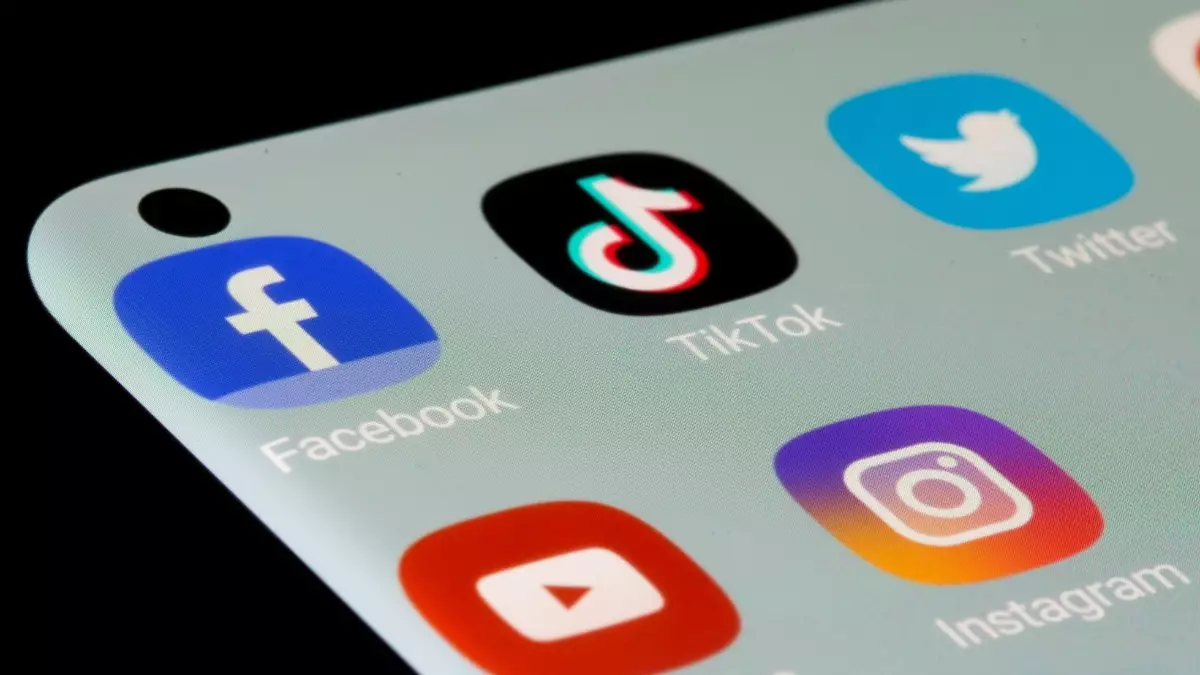In a groundbreaking move, Australia has become one of the first nations to legislate a blanket ban on social media usage for minors under the age of 16. This decision, which emerged from an intensely emotional national debate, represents a significant regulatory shift aimed at addressing growing concerns regarding the mental health impacts of social media on young people. The new law, known as the Social Media Minimum Age bill, imposes severe penalties on major tech companies—such as Meta, the parent company of Facebook and Instagram, and TikTok—if they permit minors to create accounts. Fines could reach as high as A$49.5 million (approximately $32 million or ₹270 crore), marking an unprecedented level of financial accountability for social media platforms.
The legislation demonstrates Australia’s commitment to prioritizing the safety of its youth, establishing the country as a potential testing ground for other governments grappling with the pervasive influence of social media on younger generations. This move also diverges significantly from the approaches taken by other nations, such as France and specific states in the U.S., where more lenient regulations are currently in place. For instance, while some regions have imposed restrictions contingent upon parental consent, Australia has taken the step of instituting a complete ban for the under-14 demographic.
The passage of this bill is a significant political win for Prime Minister Anthony Albanese, who faces a challenging electoral landscape leading up to the 2025 elections. Amidst a backdrop of lagging approval ratings, the law provides a much-needed boost to the Prime Minister’s political capital, although not without stirring controversy. While a substantial majority of 77% of Australians supported the ban according to recent polls, opposition has emerged from privacy advocates and child rights organizations. Critics argue that this legislation not only infringes on individual freedoms but could also exacerbate existing inequalities by isolating vulnerable young populations from supportive online communities.
Despite the backlash, the law gained traction during a parliamentary session characterized by extensive testimonies from parents who have endured the heartbreaking consequences of social media bullying, including cases of self-harm attributed to online harassment. Fueled by a media campaign led by the prominent News Corp, the debate resonated deeply within local communities, prompting lawmakers to reconsider the responsibilities that social media companies hold in safeguarding children’s mental well-being.
However, this historic legislation may have unintended consequences for Australia’s diplomatic relations, particularly with the United States. Influential figures, including Elon Musk, have voiced concerns that the ban could represent an overreach of government control over internet access, suggesting that it may pave the way for greater surveillance under the guise of protecting youth. Given Australia’s previous stances—such as requiring tech companies to compensate media organizations for content sharing—the emerging narrative depicts a growing strain in relations with tech giants.
Meta has openly expressed its discontent regarding the rushed nature of the legislation, arguing that important considerations about implementation and the voices of young users were sidelined in the legislative process. Meanwhile, other companies like Snap have committed to comply with the law but have raised significant doubts about the practicalities of its implementation. By emphasizing the importance of consultation with government bodies, these companies reveal the complexities involved in balancing user privacy, safety, and practicality.
Amidst the political and corporate discussions, the most pressing considerations should revolve around the implications for young people themselves. Advocacy groups have raised alarms about the exclusion of marginalized youths—such as LGBTQIA and migrant teenagers—from critical online support networks. The Australian Human Rights Commission has weighed in, cautioning that the law could inadvertently undermine young people’s rights to engage fully in societal activities.
While a last-minute amendment to the bill seeks to ensure that platforms provide alternatives to the uploading of identifying documents, concerns persist about the potential for increased data collection and surveillance under the law. Critics have characterized the initiative as an outdated approach by older generations attempting to control how technology is utilized by youth, echoing sentiments that the issues surrounding digital engagement are far more nuanced than simple age restrictions.
Ultimately, Australia’s decision to impose stringent age restrictions on social media use for minors could mark the beginning of a wider trend among nations grappling with similar challenges. It is crucial to recognize that while the intent behind this legislation is commendable—aimed at protecting the mental health and well-being of young Australians—its practical implementation raises questions about rights, freedoms, and the unintended consequences that often accompany regulatory overreach. As discussions around the effectiveness of such policies continue, society must carefully navigate the fine balance between ensuring safety and preserving the autonomy of future generations embedded in a digital landscape.

